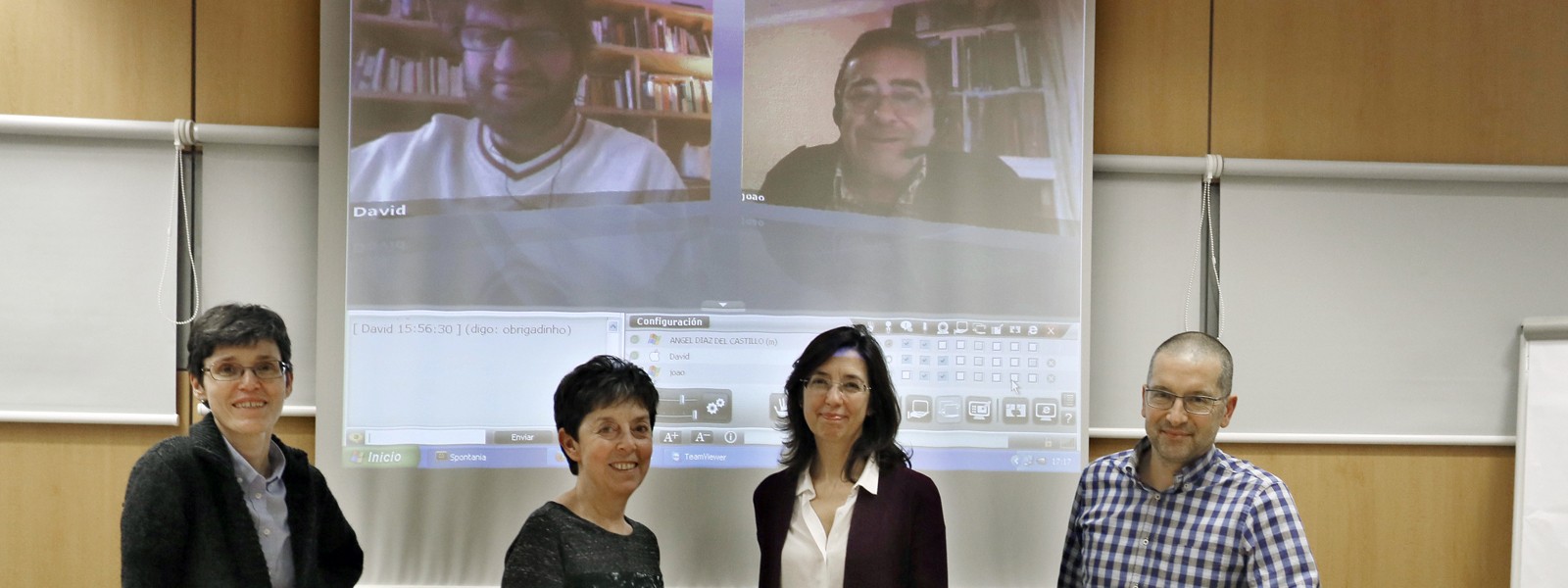DIRECTOR
MORE
Pilar García MoutonRESEARCH TEAM
Inés Fernández-Ordóñez, Universidad Autónoma de Madrid; David John Heap, University of Western Ontario; María del Pilar Perea Sabater, University of Barcelona; Joao António Das Pedras, Centro de Lingüística da University of Lisbon; Xulio Sousa Fernández, University of Santiago de Compostela.
COLLABORATING INSTITUTIONS
DESCRIPTION
The project pursues the construction of an interactive linguistic atlas of the Romance languages in the Iberian Peninsula.
The team has been working since 2009 preparing unpublished material for the Linguistic Atlas of the Iberian Peninsula (LAIP), a first-order source of linguistic information. The LAIP, conceived by Ramón Menéndez Pidal in the first half of the 20th century at the Centro de Estudios Históricos and led by Tomás Navarro Tomás, is the kind of major linguistic atlas that already exists in countries like France or Italy. Hence the need to make it available to the scientific community and thousands more potential users. It has the advantage of providing comparable materials from all the peninsula’s Romance language domains (Aragonese, Asturian, Castilian in its different variants, Catalan, Galician and Portuguese) and three countries (Spain, part of France and Portugal).
But the real novelty lies in the accessibility and dissemination of its contents, both an excellent fit with the goals of the research call. The idea is to develop a computer resource for a selection of one hundred representative questions – on phonetics, lexis and morphosyntax, supplemented by abundant ethnographic information – that will not only support the visualization and online consultation of LAIP materials but also their dynamic mapping on demand.
As well as the novelty of providing immediate online access to unpublished data of key linguistic and cultural interest, the LAIP resource marks a technological milestone, as the first interactive atlas covering the Hispanic domain which also offers dynamic content mapping. Its social utility is beyond doubt as an instrument for research of excellence, and a means to teach and inform about the languages of the Peninsula and the cultures they express.

